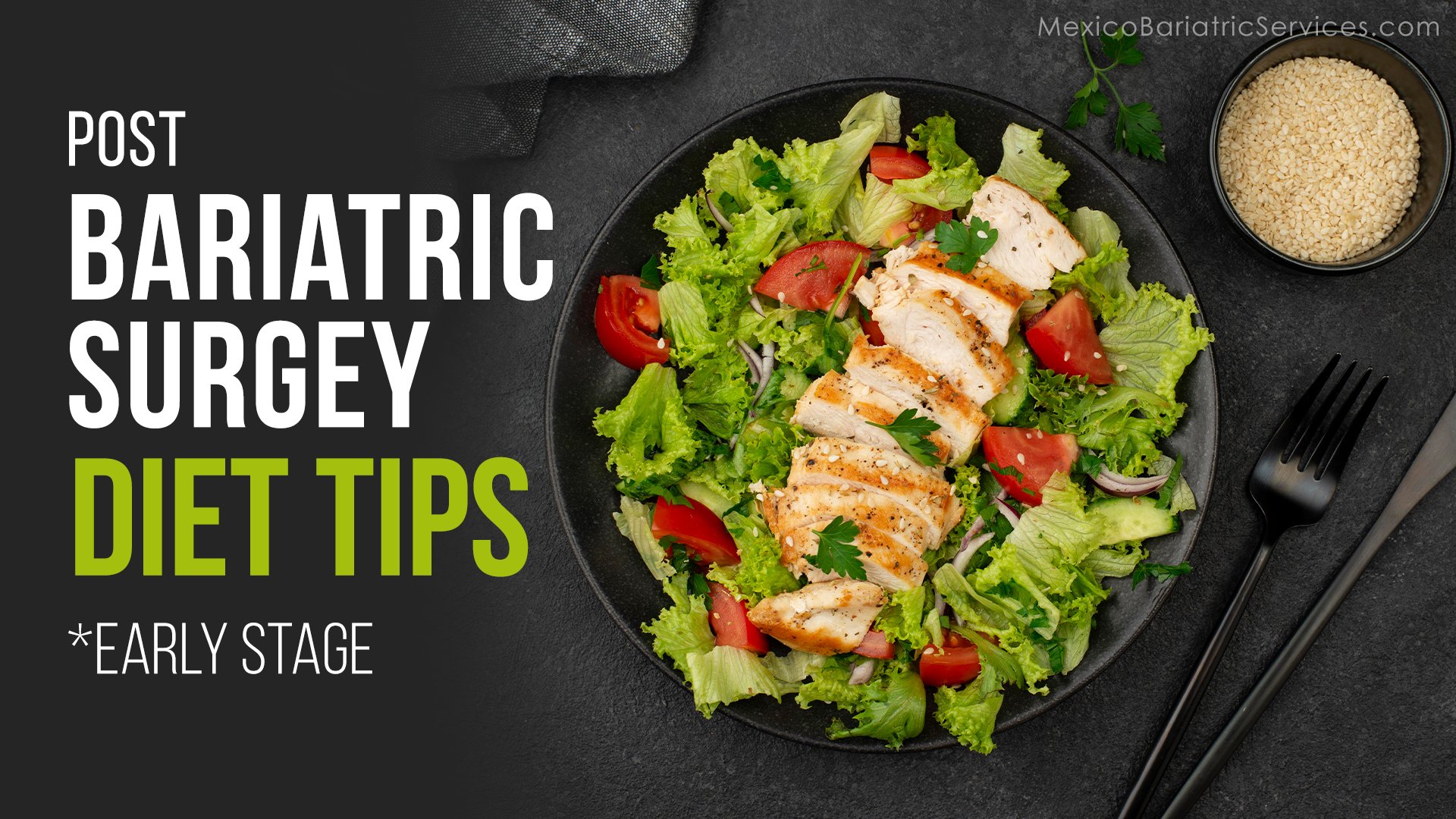Week 3 Post-Op Bariatric Surgery Instructions
Medically Reviewed by Katelyn J. Mock, US-Registered Dietician (R.D.)
Focus on Protein
You’re 3 weeks into the surgery and this is a good time after bariatric surgery to start focusing on eating an adequate amount of protein.
Everyone’s protein needs are unique, but a general rule is to aim for 65-75 gm daily.
Here are some foods that are high in protein.
- 1oz cheese: 6-8gm
- ¼ cup beans: 3gm
- 1oz soft, tender meat: 7gm
- 8oz milk (1cup): 8gm
- ½ cup Greek yogurt: 5-7gm
- ½ cup cottage cheese: 13gm
- 1 egg: 7gm
- 1 veggie patty: 5-7gm
- 1 tbs. peanut butter: 3-4gm
(Start counting the number that you are getting each day to see where you stand.)
For Roux-en-Y patients
At the beginning of week 3, Gastric Bypass Roux-en-Y patients may begin having well cooked, tender, and moist solid foods.
For gastric sleeve patients
Gastric sleeve patients will want to continue with liquid and pureed/blended foods until the end of week 4 or 30-days post-op.
Video: Early Post-Surgery Diet
Dysphagia after Gastric Bypass
After bariatric surgery and more commonly with gastric bypass patients, dysphagia (difficulty swallowing) can occur.
Dysphagia happens typically from eating too quickly, having too large of a volume of food or not chewing adequately.
Dysphagia presents typically within the first 6 months following surgery and can be severe enough that drinking liquids become difficult.
Tips for Avoiding Dysphagia
- Slow down at meals. Put your spoon or fork down between bites and wait 30-60 seconds before taking another bite of food.
- Take no more than two bites of food per minute, max.
- Chew thoroughly. Foods should be a thin, liquid consistency when swallowed.
Limit foods that are tough, dry, or stringy. Other foods that may cause difficulty swallowing include soft, doughy bread, rolls, or pita. [1]Bariatric Surgery Postoperative Concerns-2” American Society for Metabolic and Bariatric Surgery.
View in Article
Strictures or Stenosis Post Bariatric Surgery
A stricture or anastomotic stenosis occurs when the area of connection between the pouch and small intestine becomes narrowed and can potentially block the passage of food and fluid, including water.
Symptoms include nausea, vomiting (specifically undigested food), difficulty swallowing, fullness in the upper abdomen that takes an extended period of time to go away.
If you suspect you have a stricture, it is important to seek immediate medical attention, specifically if you cannot tolerate liquids, as you are at major risk of dehydration.
According to the University of Rochester Medical Center, if a stricture is present, a dilation procedure can be done that will widen the opening. [2]Anastomotic Stenosis (Stricture) After Gastric Bypass Surgery” University of Manchester Medical Center.
View in Article
Tip of the week
Regular exercise may not be on your agenda at the moment, but do find the time for some regular physical activity.
Taking a walk outside or at the mall is a great way to move your body, get that heart pumping, and to keep those skeletal muscles engaged.
References
- “Bariatric Surgery Postoperative Concerns-2” American Society for Metabolic and Bariatric Surgery.
- “Anastomotic Stenosis (Stricture) After Gastric Bypass Surgery” University of Manchester Medical Center.


